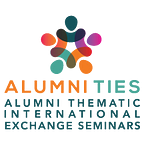Media 4 Women: A Media Literacy Program for Vulnerable Groups
by Jonathan Castro
It is impossible to deny the effect that the World Wide Web has had on global society. Communication between individuals reduced from weeks to days, days to hours, and hours to just a matter of seconds. People have become heavily dependent on the media to inform them of what is happening in their local and global communities. However, due to the speed of information exchange and reliance, global media is vulnerable to a bombardment of messages and biased content that narrates the news from different perspectives, with some messages inciting disinformation and false claims. With the arrival of the pandemic, the issue of disinformation and lack of media literacy was magnified. As waves of migrants left their countries to pursue better opportunities and environments during this time of uncertainty, contradictory information regarding the pandemic only increased on a global scale. This has generated a need for citizens to develop critical thinking about the media content they consume. In response to this need for media literacy education, my team and I developed the Media for Women (M4W) program after virtually attending the Alumni Thematic International Exchange Seminar (Alumni TIES) TechCamp Reconnect seminar on “Advancing Digital Citizenship through Media Literacy.” After the seminar, we were awarded an Alumni TIES small grant from the U.S. Department of State to enact our project and address the demand for media literacy in our community.
The Media for Women (M4W) program provided participants with trainings in media literacy, critical analysis of the news, civic responsibility awareness, and understanding the role of the media in society. The program was primarily designed for women and LGBTQ+ community leaders that serve in various roles such as students, teachers, and entrepreneurs and applied the multiplier effect so that the content shared during the trainings could reach into the community at large. Although the primary beneficiary country was Peru, the call for applications was extended to both Peruvian women and Venezuelan migrants located in Peru to unify and strengthen relations between nationalities in order to work together and generate value in their communities. With these goals in mind, our team compiled four main objectives for M4W:
1. Develop a network of female leadership that encourages responsible digital citizenship.
2. Fight misinformation by strengthening the critical spirit.
3. Evaluate the role of the Peruvian media, influencers, and opinion leaders.
4. Strengthen the critical analysis of the news and social networks in Peru.
Through the program, we trained 100 leaders under the guidance of highly experienced facilitators and equipped them with content on topics such as critical analysis of the media, journalism as a fourth estate, digital security, humanizing data in the pandemic, migration, violence, and inequality of gender, conspiracy theories, and the influence of the media on public opinion. As part of the training program, participants worked together on teams to answer a series of questions on selected articles to practice and engage in the lessons they learned about media literacy. This activity culminated in the ideation of solutions and the creation of focus groups where participants established joint projects to solve problems related to topics such as gender violence, the infodemic, human rights, and homophobia/transphobia. They presented their ideas to the local Callao community and showcased the lessons that they learned.
Throughout the process, participants shared their opinions and reflections about the Media 4 Women program which allowed us to improve the trainings for future iterations. In fact, the varying cultural differences of the Peruvian and Venezuelan participants pushed us to adapt our messages and processes in order to maximize the effectiveness and experience of the trainings for all participants. This provided our team with additional insight on how we can continue expanding our target audience with the ultimate hope of teaching media literacy and digital citizenship to everyone in Latin America.
Media 4 Women is funded through an Alumni TIES small grant from the U.S. Department of State.
